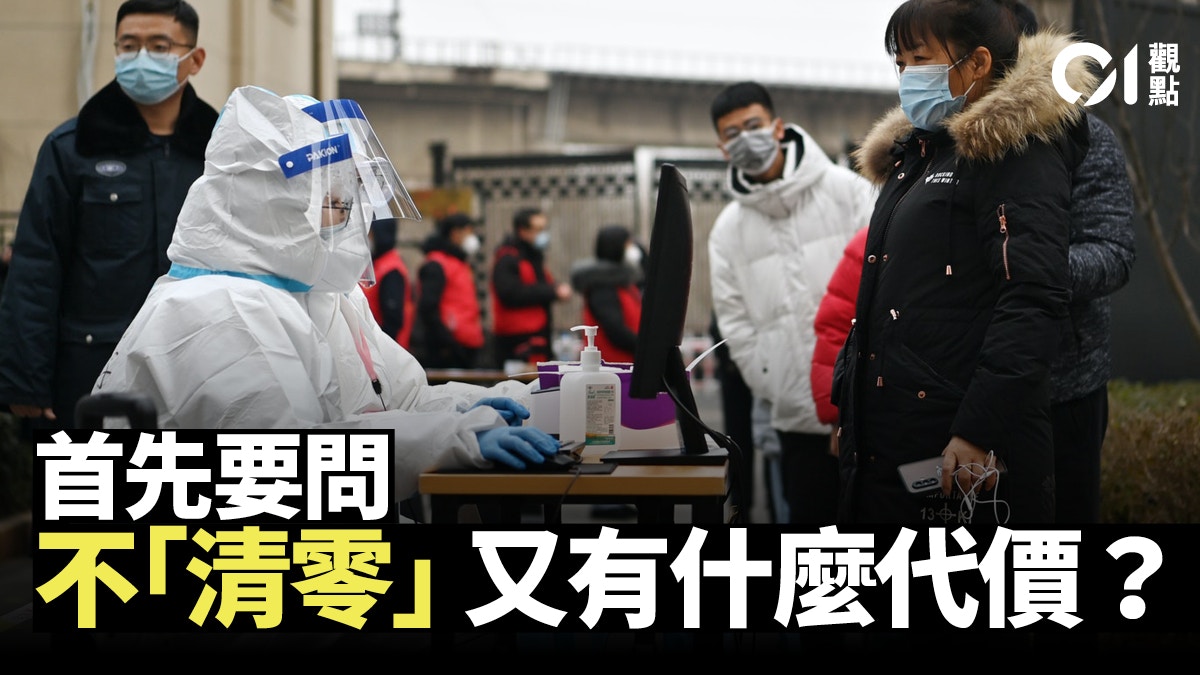Since the middle of last year, epidemics have continued to break out in various parts of the mainland, with severe cases such as Xi'an being closed for more than a month.
As of this Thursday (27th), the mainland announced 25 new local cases in the past day, and many key cities such as Shenzhen and Shanghai were successfully "cleared", and the current round of the epidemic seems to be under control.
Although the mainland can still control the epidemic this time, what is different from the past is that more and more people have begun to question the "dynamic reset" policy.
Internally, the chaos of Xi'an's city closure began to cause some people to think about whether "clearing" is too costly?
And whether it can last for a long time.
Externally, the West's attack on China's "zeroing out" policy will be counterproductive, and even the International Monetary Fund has warned that the mainland's anti-epidemic approach will hinder economic recovery.
Including the IMF, etc. believe that the mainland's "zero" policy will affect the economic recovery.
How to balance social costs
Even though the mainland still adheres to the principle of "dynamic clearing", the government also defaults to several principles.
One is that it cannot be closed forever, and the other is that "clearing" must be in the interests of society as a whole.
For example, Zeng Guang, a member of the high-level expert group of the National Health and Medical Commission, has said that China's current epidemic prevention war must be fought according to "zero", but it will not always insist on "zero."
The current discussion is nothing more than under what circumstances should we open up and give up "zeroing".
Too strict epidemic prevention policies will inevitably bring certain economic and social costs. Therefore, deciding how to prevent epidemics has always been a matter of trade-offs.
But before there can be meaningful discussions, there must be a premise—that there is a sufficiently deep and precise understanding of its consequences.
Now we know how much the economic cost of fighting the epidemic is severe. Of course, we can discuss whether these costs are worth it, but on the other hand, if we cannot determine how much the cost of giving up "clearing" will be to people's health, we cannot discuss "whether it is worth it" The problem.
The practice of "possible" leading policies and "unknown" inferring results is exactly the problem that the West has always faced in fighting the epidemic.
From the beginning of the virus, some people in the West believed that the virus might be just influenza; when the virus broke out, the West suggested that herd immunity might be useful; when it came to the Delta variant, some people thought that the epidemic might not be very serious; The epidemic may end soon.
If this continues, the fight against the epidemic will probably only be successful.
Strict anti-epidemic must persist
The question of "clearing" actually also appeared in Hong Kong, which is strictly fighting the epidemic.
After the outbreak of the fifth wave of the epidemic, dine-in dining in the evening market was stopped, and the Lunar New Year market was hit hard. Moreover, some housing estates needed to be fenced off, and many places required mandatory testing. It is understandable that there are more and more voices of dissatisfaction.
However, when discussing issues, Hong Kong society often can only raise the question of "whether the economic cost is too high", but no one can pinpoint exactly what price Hong Kong people will pay for not strictly preventing the epidemic.
One is how much impact the Omicron variant will have, and the other is how much pressure will Hong Kong's medical system face.
Only after these issues are clear can we meaningfully discuss whether the economic cost is too high.
As Zeng Guang, a mainland expert, mentioned at the end of last year when discussing when it can be "cleared", the key is how much we know about Omicron.
It has only been two months since South Africa first notified the Omicron variant at the end of November last year, and studies including vaccine efficacy, mortality, and sequelae have not been sufficient.
We won't be able to discuss it until we all have a better understanding of these.
If we still don't know enough about Omicron scientifically, Hong Kong will have to insist on fighting the epidemic strictly for a while.
Dynamic reset balance requires a test of tightness to explain the absurdity of the Western "zero reset failure theory" The disillusionment of the star-port tourism bubble "zero reset" should not be a slogan There is a discussion [New Coronary Pneumonia] The epidemic in Malaysia is easy to fatigue, the government and society must be decisively cleared

